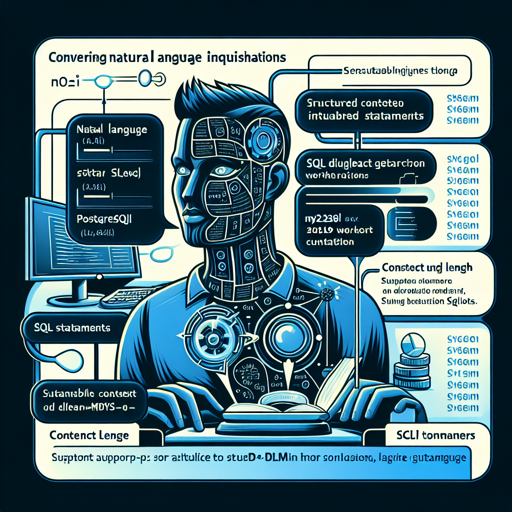Welcome to the world of streamlined database queries! In this article, we’ll explore how to use the Chat2DB-GLM model, an efficient open-source tool designed to transform natural language inquiries into structured SQL statements. Let’s dive in!
Getting Started with Chat2DB-GLM
Chat2DB-GLM is part of the Chat2DB project, specifically leveraging the Chat2DB-SQL-7B model. This model has been fine-tuned for converting human language into SQL, supporting multiple SQL dialects and handling a substantial context length of up to 16k tokens.
Key Features of Chat2DB-GLM
Dialect Support
- MySQL
- PostgreSQL
- SQLite
- And many more common SQL dialects!
This wide-ranging support makes Chat2DB-GLM versatile and adaptable for various database environments.
Performance Overview
The capabilities of Chat2DB-SQL-7B have been evaluated against the spider dataset, showcasing impressive performance in several SQL areas:
| Dialect | select | where | group | order | function | total |
|:-------------|:------:|:-----:|:-----:|:-----:|:--------:|:-----:|
| Generic SQL | 91.5 | 83.7 | 80.5 | 98.2 | 96.2 | 77.3 |Usage Instructions
To use the Chat2DB-SQL-7B model, follow these instructions. This Python snippet loads the model and sets you up to convert queries.
import torch
from transformers import AutoTokenizer, AutoModelForCausalLM, pipeline
model_path = "Chat2DB/Chat2DB-SQL-7B" # This can be replaced with your local model path
tokenizer = AutoTokenizer.from_pretrained(model_path, trust_remote_code=True)
model = AutoModelForCausalLM.from_pretrained(model_path, device_map="auto", trust_remote_code=True, torch_dtype=torch.float16, use_cache=True)
pipe = pipeline("text-generation", model=model, tokenizer=tokenizer, return_full_text=False, max_new_tokens=100)
prompt = "### Database Schema\n\n['CREATE TABLE \"stadium\" ... [your table definitions here] ...);\n\n### Task \n\nBased on the provided database schema information, How many singers do we have?[SQL]\n"
response = pipe(prompt)[0]["generated_text"]
print(response)Understanding the Code
Imagine Chat2DB-GLM as a skilled translator, fluently converting the everyday language of a database administrator into the precise language of SQL commands. The task begins with importing essential libraries (like getting your translation tools ready). This includes:
- AutoTokenizer: Think of it as a language dictionary that prepares your input.
- AutoModelForCausalLM: The brains of the operation that makes the translation possible.
- pipeline: Your translator on the frontline, taking your plain language and transforming it into authoritative SQL.
By setting up the model with the given paths and finally feeding it the structured prompt (your question regarding the database schema), Chat2DB-GLM works its magic and provides an SQL output in return!
Troubleshooting Tips
- Model Loading Issues: Ensure that you have a compatible GPU with sufficient memory as outlined in the hardware requirements below.
- Inconsistencies in SQL Output: Remember, while the model is robust, it may falter with certain SQL dialect-specific functions. Always cross-check the outputs.
- Performance Uncertainty: The model is primarily designed for academic research; its performance can vary in production settings.
For more insights, updates, or to collaborate on AI development projects, stay connected with fxis.ai.
Hardware Requirements
| Model | Minimum GPU Memory (Inference) | Minimum GPU Memory (Efficient Parameter Fine-Tuning) |
|---|---|---|
| Chat2DB-SQL-7B | 14GB | 20GB |
Final Thoughts
At fxis.ai, we believe that such advancements are crucial for the future of AI, as they enable more comprehensive and effective solutions. Our team is continually exploring new methodologies to push the envelope in artificial intelligence, ensuring that our clients benefit from the latest technological innovations.
Happy querying!

